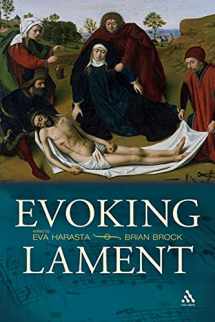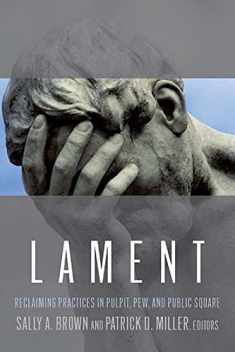
Evoking Lament: A Theological Discussion
Book details
Summary
Description
Harasta and Brock show how lament seems to introduce notes of mistrust into an otherwise confident relationship with faith, God and His will. In prayer all experiences may be brought to God in openness and trust. Yet lament seems to introduce notes of mistrust into a relationship properly characterized by confident faith in God and His will. Sustained attention to lament presents a challenge to theological reflection in reminding it of the acuteness of the experience of suffering and evil. This volume suggests that a robust concept and practice of lament is an appropriate response to questions of evil and suffering in its refusal to close off questions that cannot and should not be closed. Lament takes place in the eye of the storm of theodicy, and when the distinct content of Christian lament is discovered here the question of theodicy is transformed. The first section reflects on the anthropological conditions of lament, describing it as a hermeneutic for negotiating adverse experiences that transcends the simple opposition of innocent suffering and guilt. The second section reflects on why and how lament has faded from modern theological thought that is over reliant on systematic accounts of evil and whose abstractions have drifted free of religious experience. The third section develops an understanding of trust that includes expressions of lament while not sanitizing its rawness. The final section inquires after the distinct Christian profile of lament. Lament, even as an experience of isolation, stands within the believing community and its traditions. Moreover, because Christian lament is based on Christ's passion and resurrection, Christ endorses and shapes the believers' lament as he shapes their praise.


We would LOVE it if you could help us and other readers by reviewing the book
Book review




